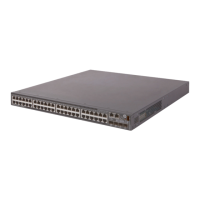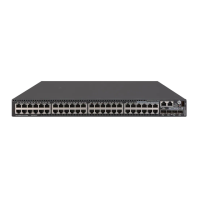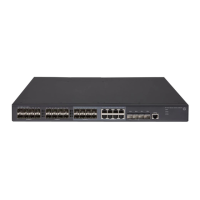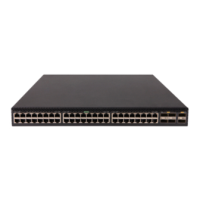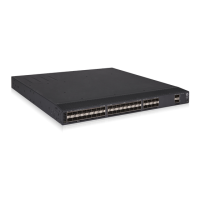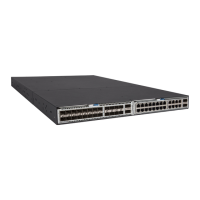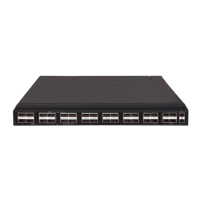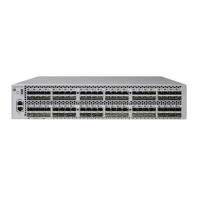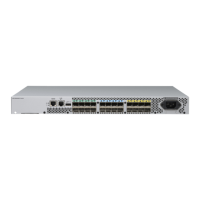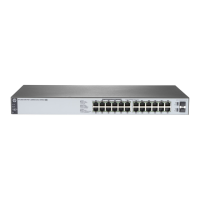38
Configuring RIP network management
You can use network management software to manage the RIP process to which MIB is bound.
To configure RIP network management:
1. Enter system view.
system-view
N/A
2. Bind MIB to a RIP
process.
rip mib-binding
process-id
By default, MIB is bound to the
RIP process with the smallest
process ID.
Configuring the RIP packet sending rate
Perform this task to set the interval for sending RIP packets and the maximum number of RIP
packets that can be sent at each interval. This feature can avoid excessive RIP packets from
affecting system performance and consuming too much bandwidth.
To configure the RIP packet sending rate:
1. Enter system view.
N/A
2. Enter RIP view.
rip
[ process-id ] [
vpn-instance
vpn-instance-name ]
N/A
3. Set the interval for sending
RIP packets and the
maximum number of RIP
packets that can be sent at
each interval.
output-delay
time
count
count
By default, an interface sends up
to three RIP packets every 20
milliseconds.
4. Return to system view.
quit
N/A
5. Enter interface view.
interface
interface-type
interface-number
N/A
6. Set the interval for sending
RIP packets and the
maximum number of RIP
packets that can be sent at
each interval.
rip output-delay
time
count
count
By default, the interface uses the
RIP packet sending rate
configured for the RIP process
that the interface runs.
Setting the maximum length of RIP packets
The supported maximum length of RIP packets varies by vendor
. Use this feature with caution to
avoid compatibility issues.
The packet length of RIP packets determines how many routes can be carried in a RIP packet. Set
the maximum length of RIP packets to make good use of link bandwidth.
When authentication is enabled, follow these guidelines to ensure packet forwarding:
• For simple authentication, the maximum length of RIP packets must be no less than 52 bytes.
• For MD5 authentication (with packet format defined in RFC 2453), the maximum length of RIP
packets must be no less than 56 bytes.
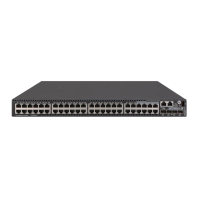
